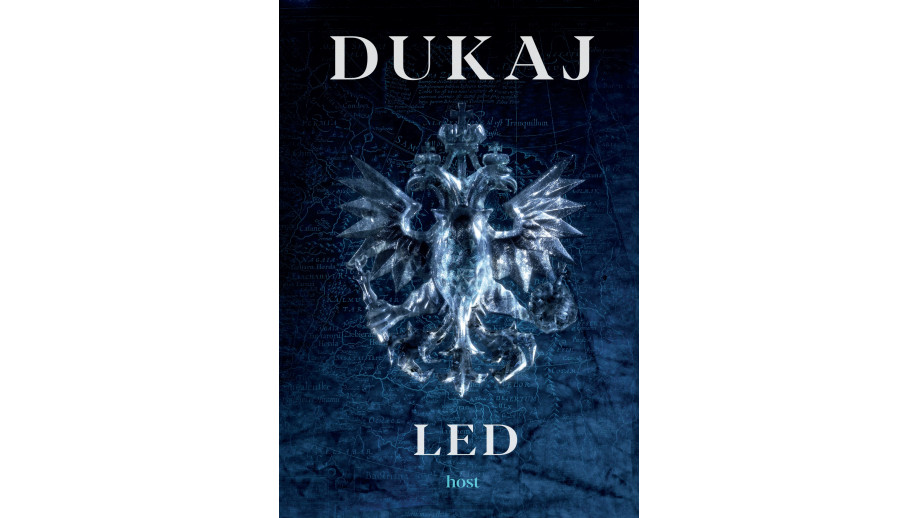News

A translation of Lód (“Ice”) by Jacek Dukaj has been recently published in the Czech Republic. The translation by Michala Benešová and Michael Alexa was supported by the Book Institute as part of the ©POLAND Translation Programme.
The book Led, as reads the title of the Czech translation of the novel, has been published by the Host publishing house from Brno.
Ice is Jacek Dukaj's most renowned novel, hailed by "Polityka" weekly as the best book of the last twenty years. The novel is set in an alternate universe where on 30 June 1908, Central Siberia was struck by a meteorite composed of the fictional mineral Tunguska, which, receiving energy, lowers its temperature (the book demonstrates that Tunguska lowers its temperature when hit with a hammer, for example - the opposite of all other substances). As a result of the fall of the meteorite (and thus providing it with a huge amount of energy, causing the temperature of the mineral and its surroundings to drop), enormous frosts (and the accompanying Lute - moving blocks of ice) began to prevail, which, soon after the strike, began to spread across Siberia, also reaching Europe (i.e., Warsaw is ice-bound. These phenomena are accompanied by other phenomena, such as "darkinosity" (which is the "opposite" of luminosity, resulting from the burning of Tunguska in so-called dimdles); Ice itself also affects animate matter in a certain way ("man has never fallen seriously ill in the land of Winter") and the human psyche. The political world reacts to all of this: the First World War never breaks out, and scholars from all parts of the world are drawn to Siberia, as the appearance of the Ice gives new, enormous opportunities in metallurgy (very light and strong alloys are created), chemistry, and other areas. Cold Nikolaevsk - the largest industrial city in Siberia - is being built; mainland Russia is slowly becoming the scientific and industrial centre of the world.
In this world, in 1924, the Warsaw mathematician Benedykt Gieroslawski accepts an assignment from the Russian Ministry of Winter to travel to Siberia to find his father, Philip, nicknamed Father Frost, who had disappeared a few years earlier and is said to be able to communicate with Lutes.
In recent years, with the support of the ©Poland Translation Programme, Michael Alexa, has translated, among other titles, Morfina (“Morphine”) by Szczepan Twardoch (Host, Brno 2017), Jacek Dehnel's Lala (“Doll”, Větrné mlýny, Prague 2015), Adam Zagajewski's Powrót (“Return”, Protimluv, Ostrava 2016), Eugeniusz Tkaczyszyn-Dycki's Piosenka o zależnościach i uzależnieniach (“A Song on Dependencies and Addictions”, Promitluv, Ostrava 2018), Marek Bieńczyk’s Tworki (Pistorius & Olšanská, Przybram 2019), and, together with Jan Faber, Jakub Żulczyk’s Ślepnąc od świateł (“Blinded by the Lights”, Promitluv, Ostrawa 2020). Michala Benešová, in turn, as part of the ©POLAND Translation Programme, also introduced Czech readers to the reportage Izrael już nie frunie (‘Israel No Longer Flies’) and Irak. Piekło w raju (‘Iraq. Hell in Paradise’) by Paweł Smoleński (2013 and 2015, both in tandem with Lucie Zakopalova), Toast za przodków (‘A Toast To The Ancestors’) by Wojciech Górecki (2017), Sprawiedliwi zdrajcy. Sąsiedzi z Wołynia (‘Righteous Traitors. Neighbours from Volhynia’) by Witold Szabłowski (2017), Modlitwa o deszcz (‘Praying for Rain’) by Wojciech Jagielski (2018), Cwaniary (‘The Hustlers) by Sylwia Chutnik (2014), Niesamowite przygody dziesięciu skarpetek (czterech prawych i sześciu lewych) [‘Amazing Adventures of Ten Socks (Four Right and Six Left)’] by Justyna Bednarek (2017), and Król (”The King of Warsaw”) by Szczepan Twardoch (2020).